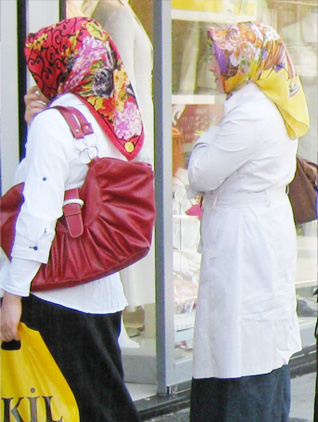
Project description
The veiling-fashion (or tesettür) sector has become a conspicuous part of the Turkish apparel industry in the past thirty years. Its growth has taken place within the wider and highly contested rise of political Islam and the ‘Islamicization’ of the Turkish economy through Islamic banking, business associations, and consumer culture. Firms producing veiling-fashion engage in the design, production, marketing and sale of headscarves, overcoats, and other items of women’s modest attire. Representing both piety and fashion, these commodities play an important role in changing social relations in Turkey and the political debates that surround them.
There are two collaborating Principal Investigators in this National Science Foundation funded project (BCS-0723986 and BCS-0722825) entitled: "Collaborative Research: The veiling-fashion industry: transnational geographies of Islamism, capitalism, and identity." Banu Gökarıksel (Geography, University of North Carolina at Chapel Hill) and Anna Secor (Geography, University of Kentucky) examine 1) the scope, history, and geography of the veiling-fashion industry headquartered in Turkey by tracing out the circuits of production, design, sales, and finance that characterize the industry; and 2) how the production and consumption of veiling-fashion participates in the creation of religious, gendered, ethical, and classed subjects and spaces.
This project employs a multi-method research design: a survey of 174 veiling-fashion firms in Turkey, case study interviews with three of these firms, and focus groups and interviews with salespeople, garment workers, and consumers in Istanbul and Konya. Gökarıksel and Secor analyze survey, focus group, and interview data to understand what role Islam plays at different points in the production of veiling-fashion and from the perspectives of different actors in the veiling-fashion industry.
